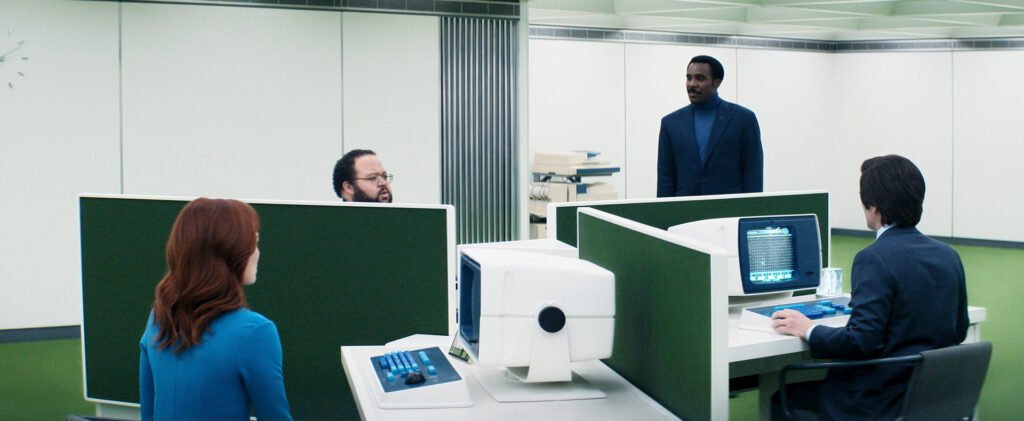Apple TV+’’s Severance is more than a corporate thriller — it’s a slow-burn psychological masterpiece that dissects identity, trauma, love, control, and rebellion. Every character, from Lumon executives to off-grid rebels, contributes to the existential web of the show. Here’s a deep dive into the top characters, their symbolism, and how they shape the story.
1. Mark Scout (Adam Scott)
The Grieving Everyman
Mark Scout, played by Adam Scott, is the show’s emotional center. His outie self is a grieving widower, emotionally numb and stuck in the past. His innie, in contrast, is compliant but curious, gradually emerging as a quiet leader among his coworkers. Mark embodies repressed grief and the journey toward emotional reintegration, raising the central question: can selfhood survive corporate severance?
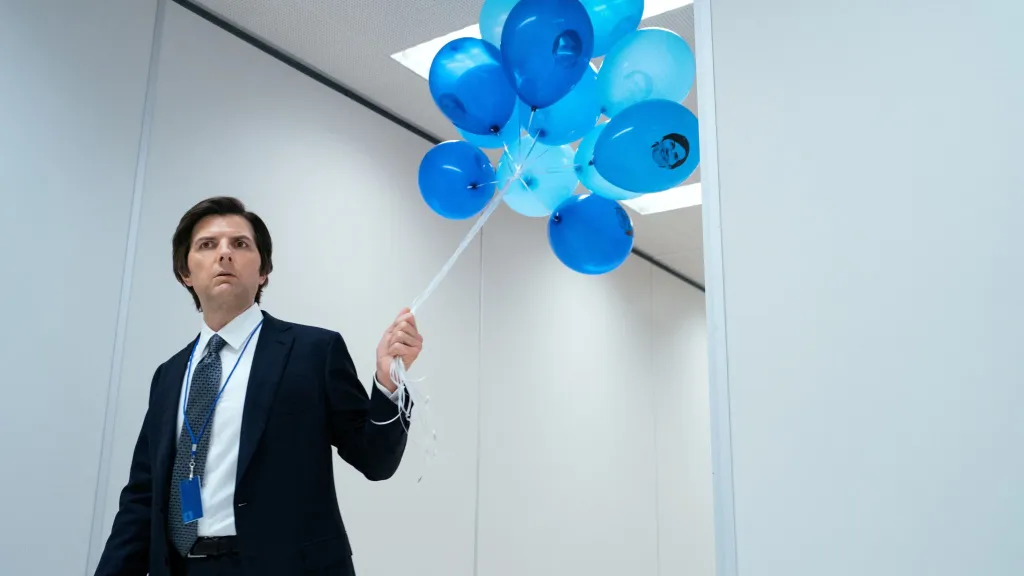
- Outie Mark is a widower lost in numbness, while Innie Mark is compliant, curious, and emotionally naive.
- He starts as a passive tool of Lumon and evolves into a quiet leader seeking truth and wholeness.
- Mark’s split life represents unresolved grief and emotional repression.
- Central question: Can selfhood survive corporate severance?
2. Helly R. (Britt Lower)
The Corporate Hostage-Turned-Revolutionary
Helly R., portrayed by Britt Lower, begins the series as a defiant and desperate employee. Her innie resists Lumon at every turn, even attempting suicide. The shocking reveal that she is Helena Eagan, the daughter of Lumon’s founders, reframes her story as one of internal rebellion against inherited power. Helly represents both corporate control and the personal toll of dehumanization.
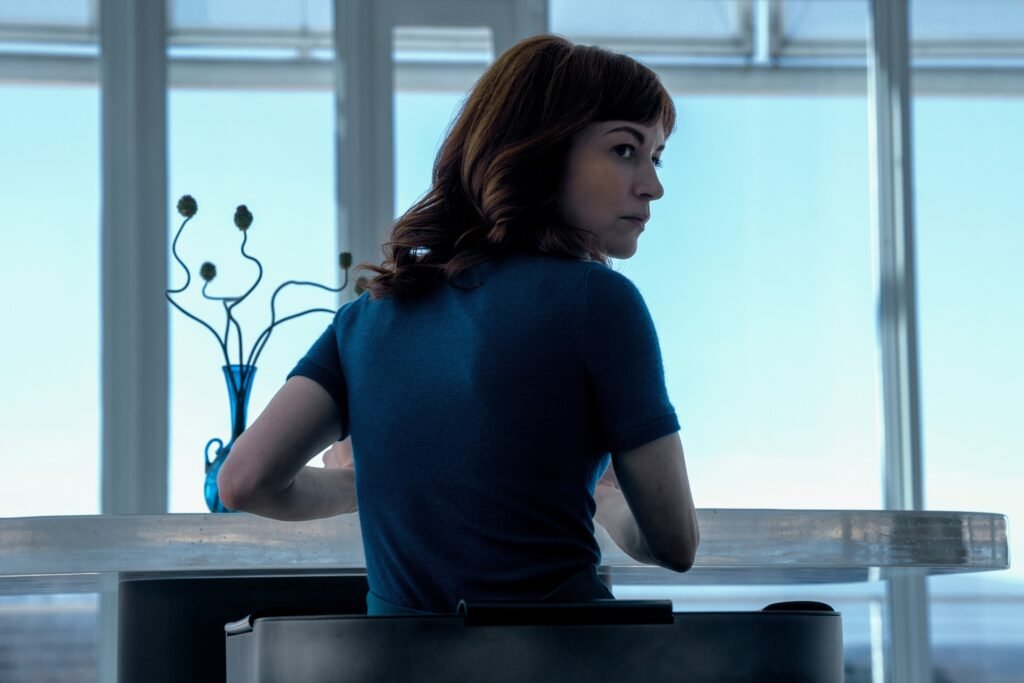
- Innie Helly rebels from her first day, even attempting suicide to escape.
- The twist: she’s Helena Eagan, heir to Lumon. Her innie is a prisoner created for PR.
- Her rebellion is both personal and political — a body fighting its own legacy.
- Helly represents the cruelty of corporate branding and the dehumanization of workers.
3. Irving Bailiff (John Turturro)
The Disciplined Believer Cracking Under Truth
Irving Bailiff, played by John Turturro, is deeply committed to Lumon’s rituals, yet harbors private doubts and desires. His hidden hobby of painting Lumon’s hallways and his intimate bond with Burt suggest a suppressed self struggling to emerge. Irving is a study in indoctrination, loyalty, and the quiet force of longing.
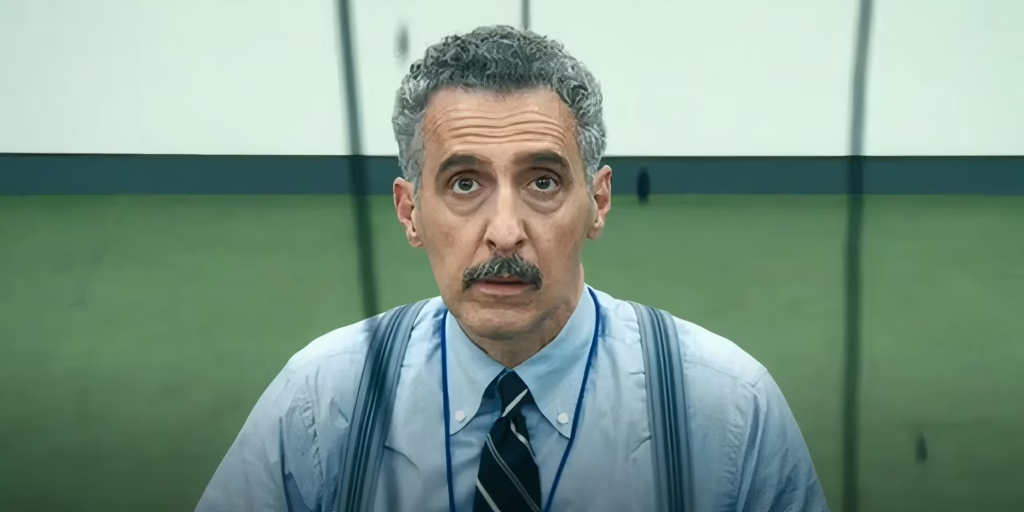
- Irving is deeply devoted to Lumon rules and rituals.
- But he secretly paints Lumon hallways and longs for Burt, his love in O&D.
- He embodies conflict between indoctrination and suppressed desire.
- His trauma runs deep, possibly military-related, hinting at PTSD and disassociation.
4. Dylan George (Zach Cherry)
The Comic Loyalist Who Snaps
Dylan George, played by Zach Cherry, starts off as a loyal and sarcastic employee obsessed with Lumon trivia and incentives. Everything changes when he discovers he has a child on the outside. His instinctual rebellion represents how love and identity can override even the most rigid systems of control.
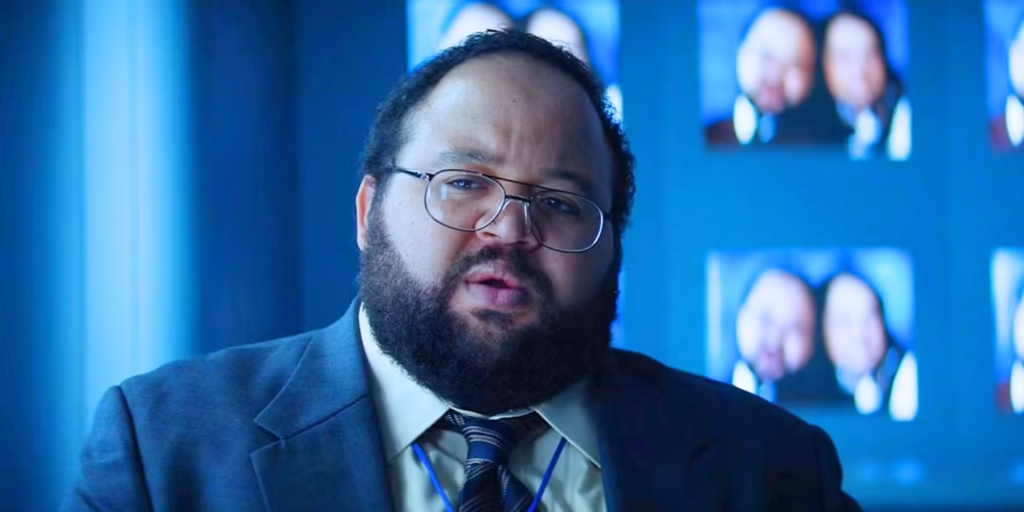
- At first, he loves Lumon perks and trivia. He’s funny, snarky, and stubborn.
- But when he sees his son during an overtime event, everything changes.
- Dylan’s rebellion is primal — driven by love, not ideology.
- He represents the moment when paternal instinct trumps institutional loyalty.
5. Harmony Cobel (Patricia Clarkson)
The Zealot in a Mother’s Mask
Harmony Cobel, portrayed by Patricia Clarkson, is one of the show’s most chilling figures. As Mark’s boss and secret neighbor, she walks the line between calculated manipulation and sincere belief in Lumon’s mission. She’s a zealot in a mother’s mask, blending fanaticism with maternal control.
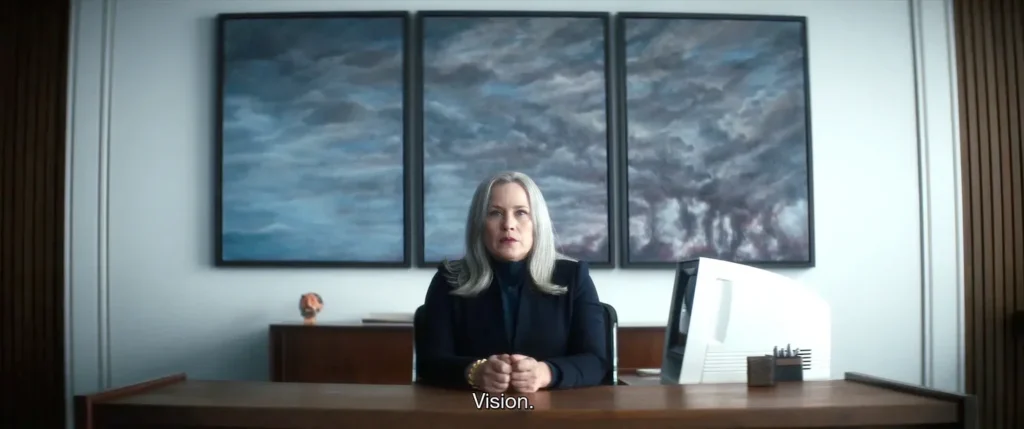
- Cobel is terrifying in her calmness and manipulation.
- She poses as Mark’s neighbor to spy on him, but also mourns the severance experiment when it fails.
- She believes in Lumon’s spiritual mission, bordering on religious fanaticism.
- Her duality: part cult leader, part failed maternal figure.
6. Burt Goodman (Christopher Walken)
The Soft Revolutionary
Burt Goodman, brought to life by Christopher Walken, is the soft-spoken head of Optics & Design. His gentle, art-loving nature and touching relationship with Irving offer a rare pocket of tenderness within Lumon’s sterile world. Burt represents dignity, beauty, and the resilience of love in repressive environments.
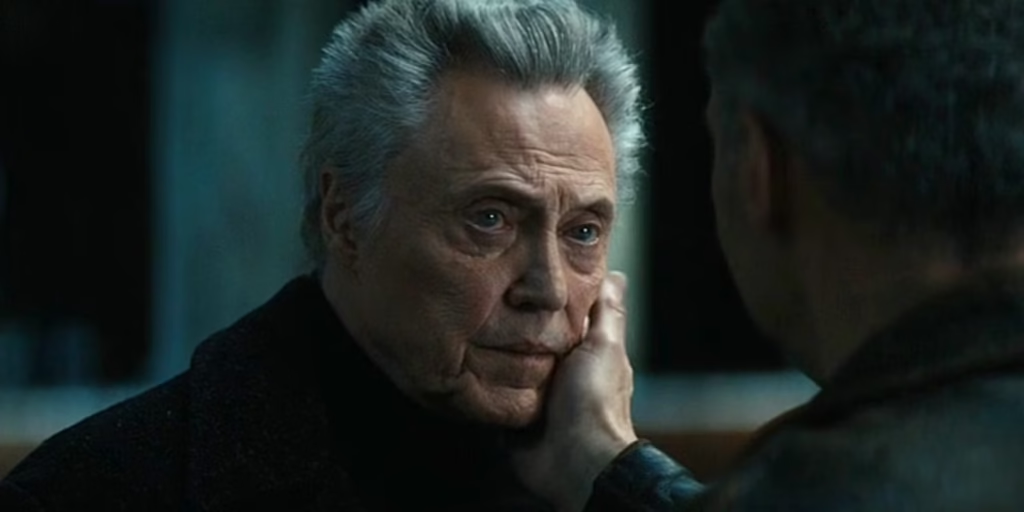
- Burt is a kind, poetic soul in charge of Optics & Design.
- His quiet romance with Irving is tender and quietly radical.
- He values art, connection, and dignity in a system built to strip all three.
- Burt’s exit devastates Irving and triggers deeper cracks in Lumon’s control.
7. Ms. Casey / Gemma (Dichen Lachman)
The Ghost in the System
Ms. Casey, later revealed as Gemma (Dichen Lachman), is a wellness counselor with robotic mannerisms, slowly unraveling as her humanity resurfaces. Once Mark’s presumed-dead wife, she becomes a symbol of identity manipulation and memory suppression. Her quiet life tending sheep in Season 2 hints at detachment, exile, or perhaps healing.

- Gemma, Mark’s supposedly dead wife, is repurposed as Ms. Casey, Lumon’s wellness counselor.
- She behaves robotically, but signs of memory seep through.
- Her eventual transfer and off-grid sheep-herding scenes (Season 2) suggest she may be awakening.
- Gemma/Casey explores resurrection, identity manipulation, and ethical trauma.
8. Ricken Hale (Michael Chernus)
The Accidental Prophet
Ricken Hale, played by Michael Chernus, is Mark’s brother-in-law and a bumbling but sincere self-help author. His absurdly earnest writing unexpectedly inspires the innies. Ricken is the show’s accidental prophet, a reminder that even flawed wisdom can spark profound change.
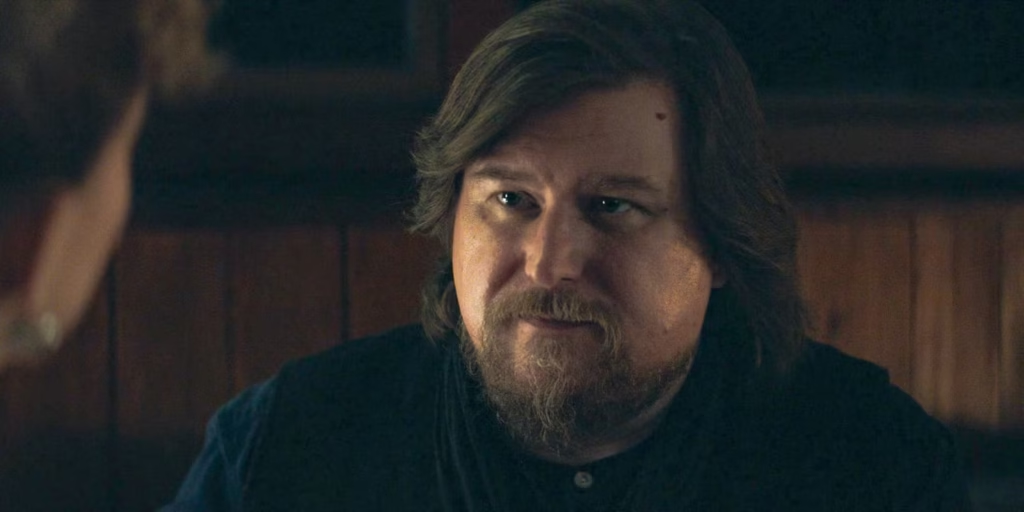
- Devon’s husband and Mark’s brother-in-law, his absurdly earnest self-help book becomes revolutionary scripture inside Lumon.
- His cringe wisdom lands as profound to innies who’ve never heard truth before.
- He represents the idea that even silly, flawed voices can carry radical hope.
9. Devon Hale (Jen Tullock)
The Grounded Protector
Devon Hale, portrayed by Jen Tullock, is Mark’s grounded and intuitive sister. As a new mother and skeptic of Lumon, she anchors Mark to reality. Devon represents care, instinctive resistance, and the quiet strength of emotional clarity.
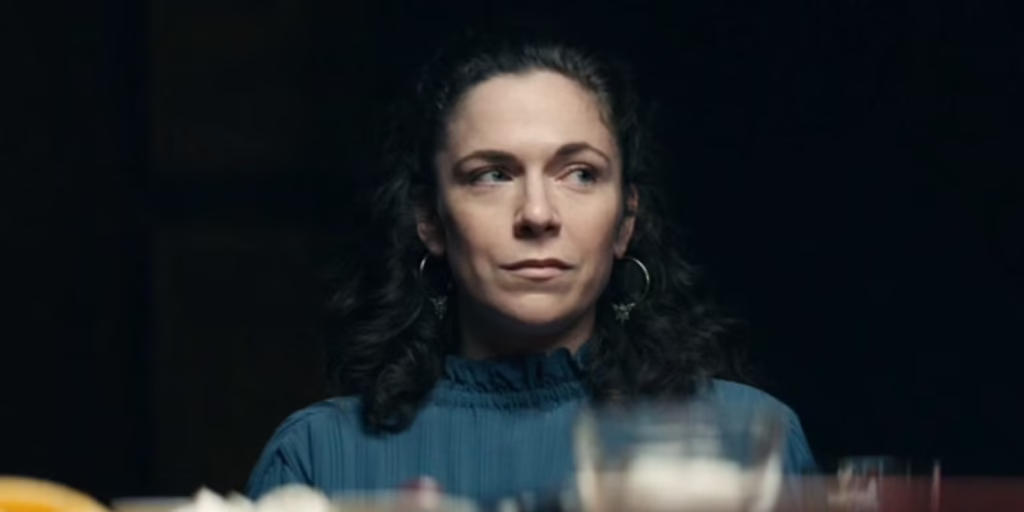
- Mark’s sister and new mother. She’s cautious of Lumon, intuitive, and emotionally present.
- She offers Mark a lifeline to a fuller life outside severance.
- Devon represents empathy, maternal instinct, and resistance rooted in care.
10. Natalie (Sydney Cole Alexander)
The Ice-Cold Executive
Natalie, played by Sydney Cole Alexander, is the public face of Lumon. Always composed and efficient, she manages PR and shields the Eagan legacy with icy precision. Natalie is corporate propaganda personified, embodying compliance dressed as professionalism.
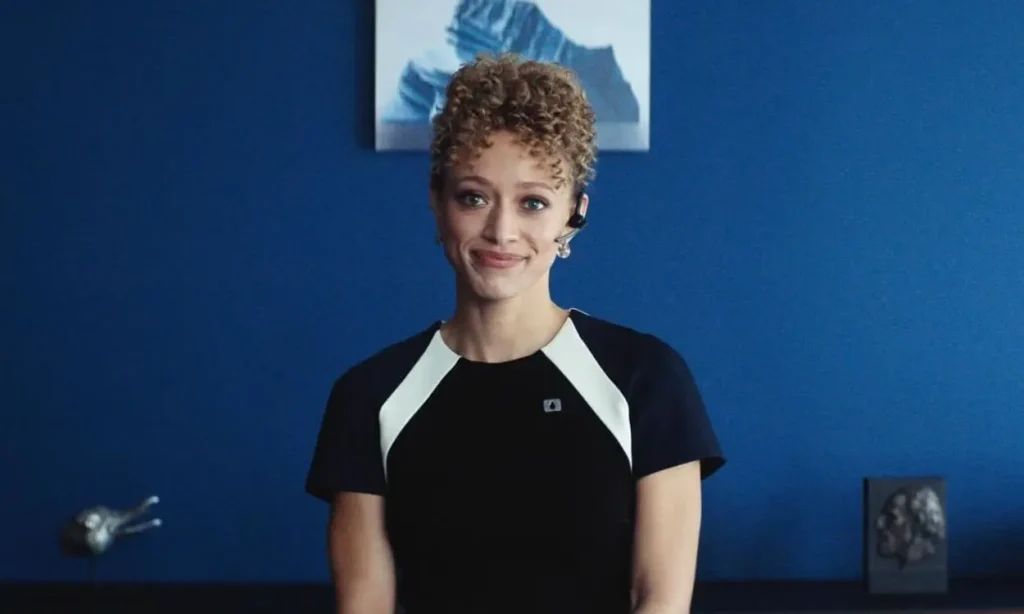
- Lumon’s external PR face. Calm, sharp, remorseless.
- Her loyalty to the Eagan family is chillingly absolute.
- Natalie is corporate propaganda in human form, embodying faceless obedience.
11. Jame Eagan (Michael Siberry)
Jame Eagan, portrayed by Michael Siberry, is the patriarch of the Eagan family and a religious figurehead within Lumon’s ideology. He speaks in grand, cryptic terms, casting severance as a divine gift. Jame exemplifies capitalism cloaked in spiritual righteousness.
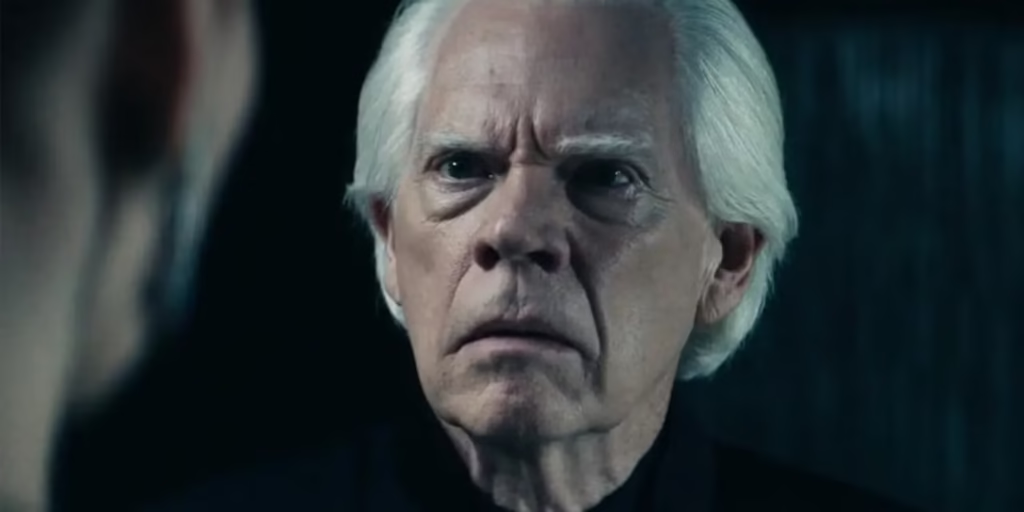
The Corporate Messiah Complex
- Patriarch of the Eagan family and Lumon’s cult-like leader.
- Believes the severance process is a gift, a holy mission.
- Speaks in riddles and sermons, casting himself as prophet, not CEO.
- Represents capitalism as religion — profit wrapped in divinity.
12. Mr. Milchick (Tramell Tillman)
Mr. Milchick, played by Tramell Tillman, is Lumon’s cheerful enforcer. Always polite and smiling, he administers punishments and monitors behavior with chilling calm. Milchick illustrates how performative kindness can mask authoritarian control.
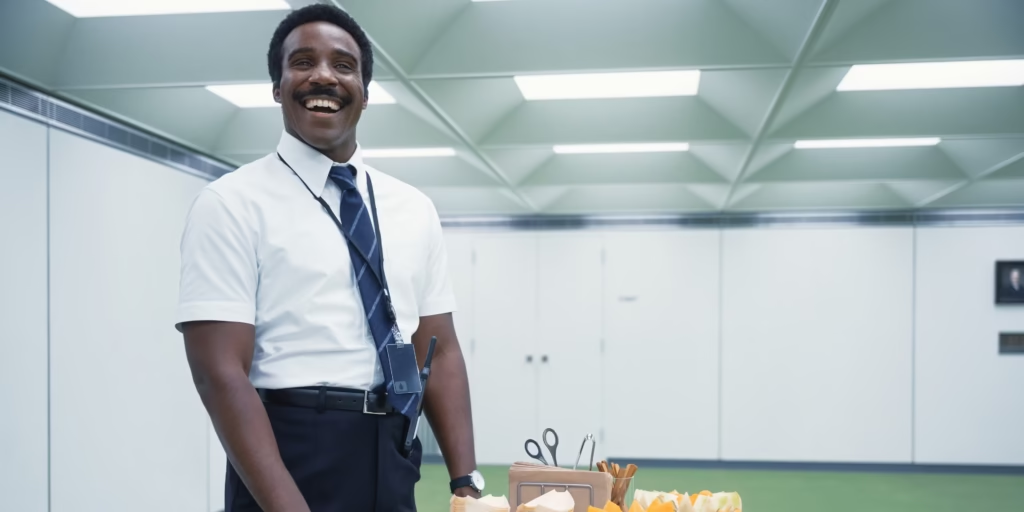
The Enforcer with a Smile
- Always cheerful, always watching.
- Milchick runs rewards, punishments, and overtime events. He’s Lumon’s velvet-gloved fist.
- His calm voice and violent authority make him one of the show’s most chilling characters.
- Represents the performative kindness of workplace surveillance.
Final Reflection: Who Are We, Really?
Every Severance character is a fragment of modern identity: fractured by grief, pressured by work, molded by power, and sometimes reborn through rebellion. From Mark’s grief to Helly’s fury, from Irving’s devotion to Gemma’s ghostlike peace, the show dares us to ask: If we split our lives to survive them… can we ever be whole again?

